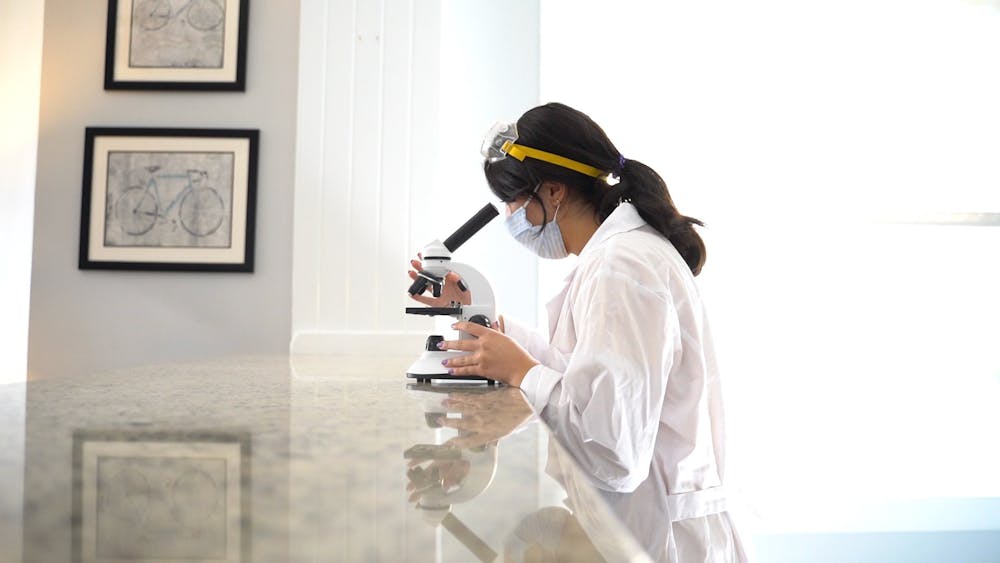When COVID-19 was discovered, science had a lot of catching up to do.
From identifying the virus, deciphering its genomic sequence and figuring out its origins, scientists have had their hands full, as numerous biomedical laboratories quickly pivoted to contribute to pandemic research.
In 2020, over 100,000 articles were published on topics relating to COVID-19 (almost 4 percent of all publications that year). Initially, these articles discussed the spread of the disease, patient outcomes and diagnostic testing. However, research eventually expanded to include topics such as how the virus can affect individuals with certain health conditions, or its impact on mental health.
Scientists and investigators worked collaboratively on an international scale to learn as much about the virus as possible. UNC, home to one of the nation’s leading public health programs, has played an integral role in the research that is being used by governmental organizations to issue guidelines and make science-based decisions throughout the pandemic.
Here are just a few of the on-campus labs that have been leading the charge, and what to keep an eye out for in their current research:
Spreading COVID-19 after vaccination
One of the major questions as vaccination opens up for all adults in North Carolina is whether or not vaccinated individuals can still spread the virus. This is exactly what Audrey Pettifor, professor at the Gillings School of Global Public Health, hopes to research as co-principal investigator of the Prevent COVID U study.
The study, sponsored by the National Institute of Allergy and Infectious Diseases and discussed in White House COVID-19 response press briefings, is a clinical study that tests whether a person can become infected and transmit COVID-19 post-vaccination. While it is currently enrolling college students as study subjects, results from the trial will likely be utilized in governmental decision-making on mask policies and social distancing later this year.



